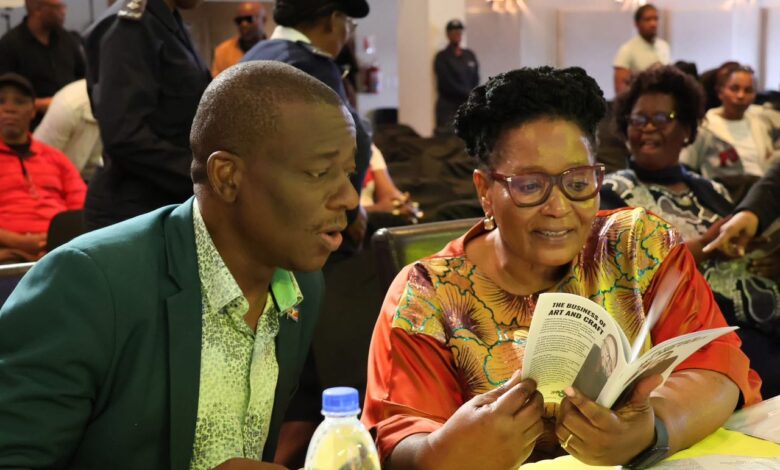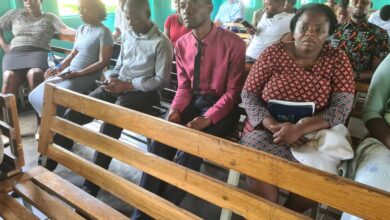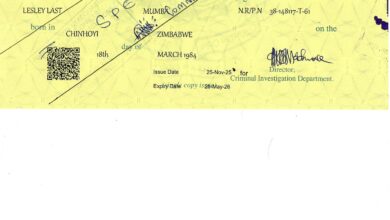Thulisile Dladla From Classroom to Cabinet

Nicholas Ncube
The story of Thulisile (Thuli) Dladla, Eswatini’s Deputy Prime Minister like most iconic African leaders begins in the classroom as an educator. Thuli like Kwame Nkhrumah, Jomo Kenyatta and many others developed a passion for making a difference and positive impact on society in the classroom.
Thulisile Dladla has built a public-service career defined by a persistent focus on improving the lives of women, children and persons with disabilities. What began as a long career in education evolved into national leadership roles that Dladla has used to push for stronger social protections and greater inclusion.
Dladla completed her secondary schooling at St Michael’s (class of 1975) and went on to earn a Bachelor of Humanities from the University of Botswana in 1981. She spent 27 years in the education sector before moving into politics — a background she frequently cites as formative to her public-policy instincts and focus on youth and family issues.
In 2008 King Mswati III appointed Dladla as a Member of Parliament, and she retained a parliamentary role through subsequent terms. In 2018 she was appointed to the Senate and named Minister of Foreign Affairs and International Cooperation becoming the first woman to hold that portfolio in Eswatini. Her diplomatic portfolio included state visits and bilateral meetings, underlining her transition from domestic education work to international representation.
On 13 November 2023 Dladla was elevated to Deputy Prime Minister, a role in which she has leveraged executive standing to advance social-policy priorities at home and represent Eswatini abroad. Her time at State House has been marked by a visible emphasis on gender equality, child protection and disability inclusion as cross-cutting elements of government planning.
As Deputy Prime Minister and in earlier ministerial roles Dladla has taken Eswatini’s obligations on gender and child welfare into global forums delivering statements at the UN Commission on the Status of Women and outlining national progress while urging action on violence against women and girls. Domestically, her office has pushed for stronger child-protection programming and for mainstreaming disability into national planning and budgeting.
A concrete outcome of that focus is Eswatini’s National Disability Plan of Action 2024–2028, a government framework developed with UN partners to mainstream disability rights across policy and services. Dladla’s office is credited publicly for championing the plan and for coordinating the multi-agency work needed to operationalise it.
The country and region ’s first national Disability Music & Arts Festival was launched under the aegis of the Deputy Prime Minister’s Office in 2025. The inaugural festival held at The Luke Commission auditorium and officially promoted by Dladla’s office showcased artists with disabilities from across Eswatini and was widely reported as a milestone in using the arts to break stigma and broaden opportunity. International bodies, including the UN in Eswatini, publicly commended the event.
Dladla’s foreign-affairs experience has translated into continued international engagement. She led bilateral delegations (including a noted 2019 visit to Taiwan as foreign minister) and in 2025 represented King Mswati III during a virtual session of the African Union Peace and Security Council, arguing for African-led solutions to regional conflicts. She has also engaged in UN-linked events that tie culture, sustainable development and social policy together.
Observers credit Dladla with elevating women’s issues, child protection and disability rights into mainstream government programming — transforming advocacy into policy instruments (for example, the Disability Plan of Action). But civil-society leaders and development partners note that the challenge now is implementation: funding, sustained cross-ministerial coordination and measurable service delivery will determine whether plans translate into improved lives at scale.
The Prime Minister Rusell Dlamini and King Mswati have been extremely supportive of Thulisile Dladla’s programs to uplift women , children and persons with disabilities. It is now upto the donor community to support the Office of the Deputy Prime Minister and the people of Eswatini as they make strides to improve the lives of women , children and persons with disabilities.





